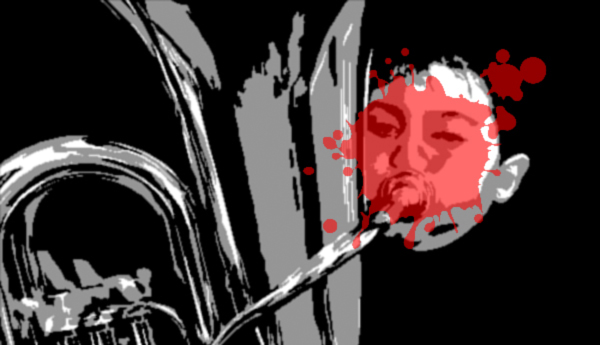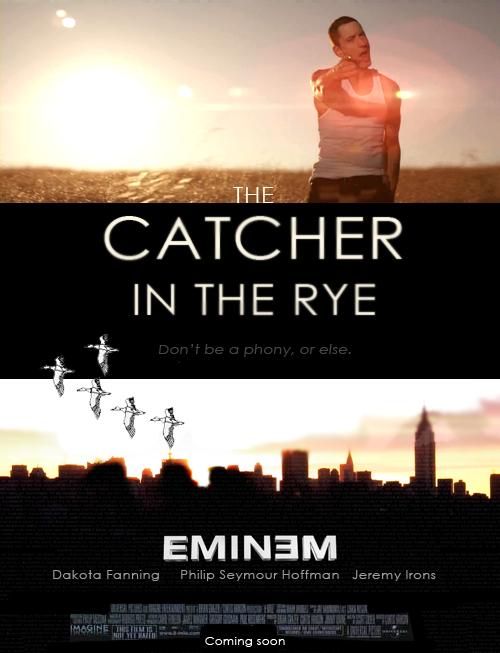Where to Begin?
One writer I know said a story begins on the day something different happened. Another said the story begins where the trouble particular to the point of view starts. Another said give away everything at the beginning, the way John Irving does. Another said start with the strongest possible bit of language or the strongest sentence. Another said start in the middle. Another said start with something mysterious and compelling. Another said start with some nonsense to make the promise you’ll keep. Another said start ambiguously. Another said start unambiguously. Another said start at the end. Another said start at the beginning. My uncle committed suicide, and I wanted to write an essay about it, but I couldn’t figure out where to start, so instead of writing about my uncle’s death, I wrote about “The Question of Where We Begin.” There was no satisfactory answer to the question of where we begin. Every time the question gets asked, it raises a hundred new questions. Where did the trouble begin? If you believe, as some stories do, in a cause-and-effect chain, can’t it be traced back to the beginning of everything? What then? Isn’t this the argument they’re having in school board meetings in Kansas and Texas? And isn’t it true that by dint of deciding where you begin, you’re already giving the lie at the center of “nonfiction”? Because nothing is untouched by subjectivity, and no story doesn’t betray something about its maker?
I’m intrigued, then, by the strategies employed by an old mass market writer named James Michener, who didn’t write books about Bob or Jane or Dick or Tiger or Terry or T.J. or Tylene. He wrote novels about Texas or Poland or South Africa or Space. And with subjects so large — subjects usually tackled by historians or political philosophers geologists or geographers or journalists, rather than by novelists — wouldn’t he have to come up with a strategy that made a rather different kind of promise than “Friday morning, Evelyn woke up to find her husband dead”?
Here is the opening to Michener’s novel Hawaii:
Millions upon millions of years ago, when the continents were already formed and the principal features of the earth had been decided, there existed, then as now, one aspect of the world that dwarfed all others. READ MORE >
More on kinesthesia and writing
Knowing a woman’s mind & spirit had been allowed me, with dance I discovered my body more intimately than I had imagined possible. With the acceptance of the ethnicity of my thighs & backside, came a clearer understanding of my voice as a woman & as a poet. The freedom to move in space, to demand of my own sweat a perfection that could continually be approached, though never known, waz poem to me, my body & mind ellipsing, probably for the first time in my life.
— Ntozake Shange
THE FREEDOM TO MOVE IN SPACE IS POEM.
What is Experimental Literature? {Recap: Five Questions Vol. 1}
In case you missed any of them, below you’ll find links to each of the 10 writers who participated in the first edition of my series of interviews aimed at expanding our understanding of experimental literature. We generated a heap of conversation and interest, not only here but all over the web: from Ron Silliman to The New Yorker and elsewhere. Due to the overwhelmingly positive feedback from this series, I have decided to keep it going. I’m currently in the process of creating the questions for the second round of the series, which I’ve decided to formulate by using the answers given by the writers from the first series. This way, hopefully, it’ll feel like an ongoing conversation. You can expect the next edition to appear in the month of May, and to include ten new writers of experimental literature. My thanks to everybody for participating. This has been a really great experience. I’m looking forward to presenting the next edition!
Depression and the Kinesthetic Theory of Writing
Sometimes the holy writing spirit possesses you.
There’s no summoning it. I’m beginning to understand that now.
Not like that. Not like: SIT DOWN TO WRITE AND BE INSTANTLY INSPIRED.
There are conditions
There are kinesthetic conditions
There’s running downhill in the park as the rain approaches and the top of your head flies off like a hat getting blown away by a gust of wind.
There is inside the sensation of bodies touching bodies that move toward each other bodies that approach trembling but without fear.
There’s the orange light in the rain-paved streets and the stranger under the bridge.
Hello stranger I am lost.
These are things I cannot generate my own, alone in a room.
There are kinesthetic conditions
Sore muscle conditions
And the understanding that the more I move,
The more I will be able to access the world.
Werner Herzog & Moondog in that thing that made Jeff Goldblum ‘The Fly’
Maybe you see all these videos and think “I don’t have time for this shit” and while I totally sympathize with that, I strongly suggest you make the time for this video if you have so much as a passive interest in the art of music, which you should because literature is music; cavemen played music; music is probably older than language, probably they are more or less the same thing, which is interesting because it seems to me the only thing separating music from noise is some form of repetition.
Skip to like 4:30 to avoid the usual b.s.
Thanks to my friend Eric Schaefer, who puts out Answering Machine Recordings, for sharing.
“Burk’s Nub” from LOOK! LOOK! FEATHERS by Mike Young

So. Cyber-punk.
“Johnny Mnemonic” can’t get past just being Johnny Mnemonic. “Burk’s Nub,” though, gets to be Tetsuo The Iron Man, and “Burk’s Nub,” gets to be George Washington.
Because “Burk’s Nub” isn’t concerned with the gadgetry of cyber-punk. It’s just concerned with youth, with bodies, with tubas, and with language. And because it is full of concern and not full of fetish, it gets to be fuller and more satisfying and more interesting. READ MORE >


